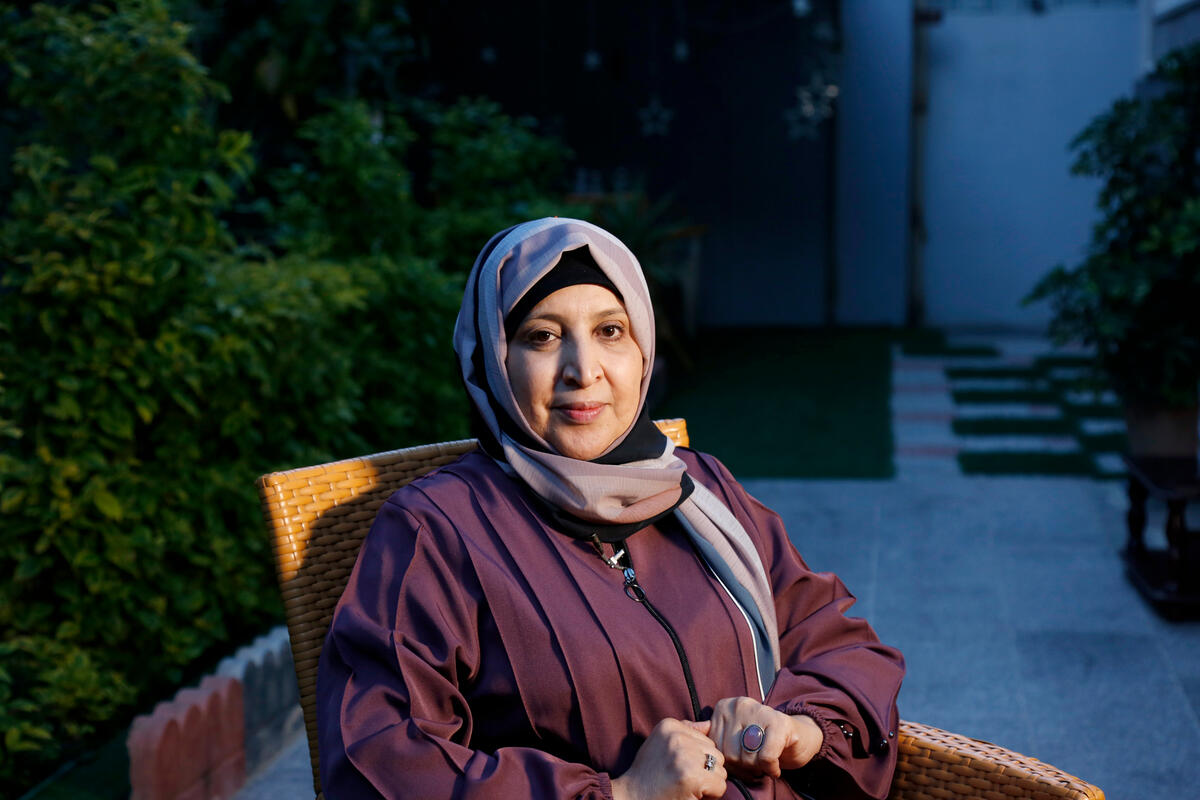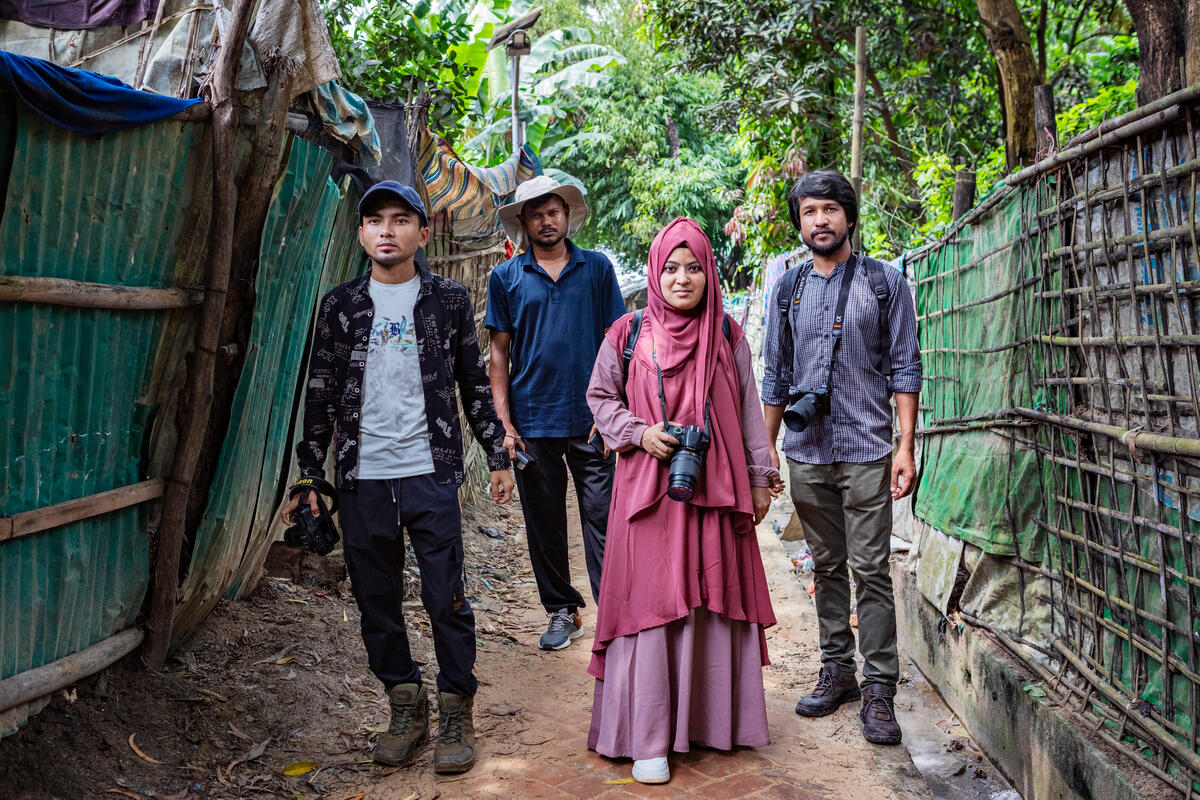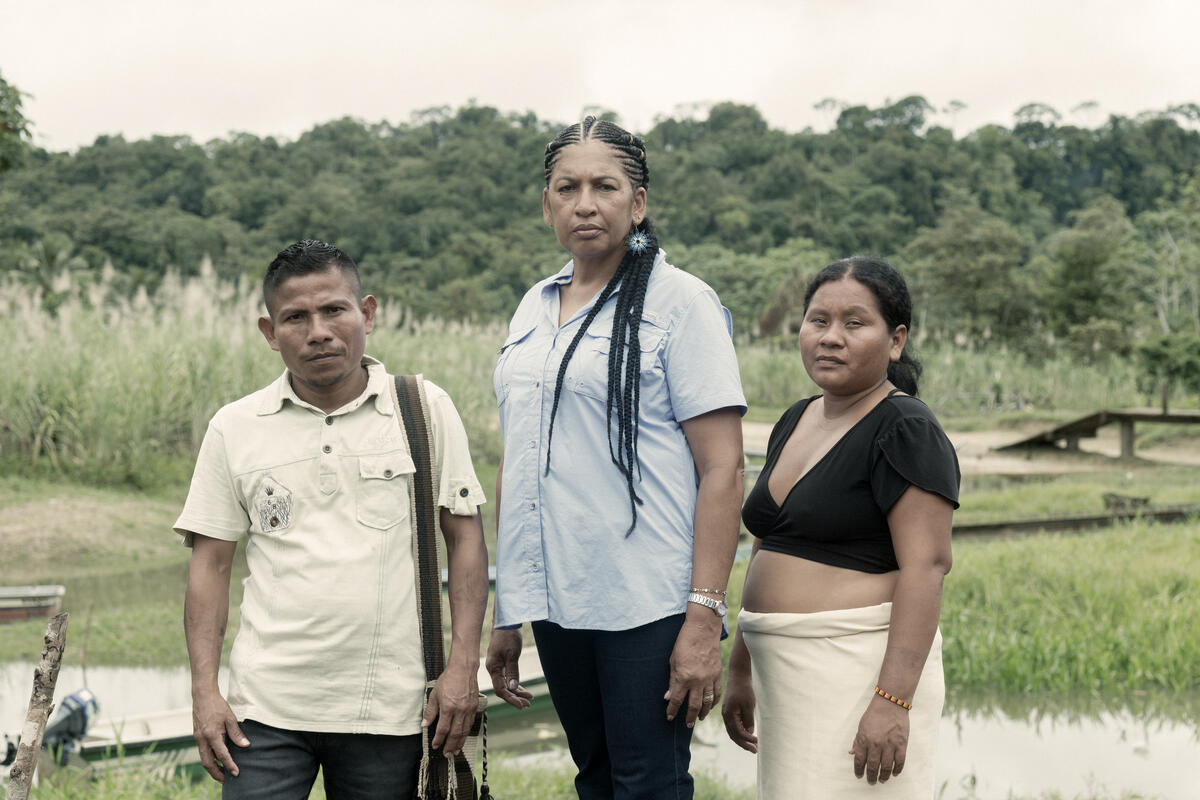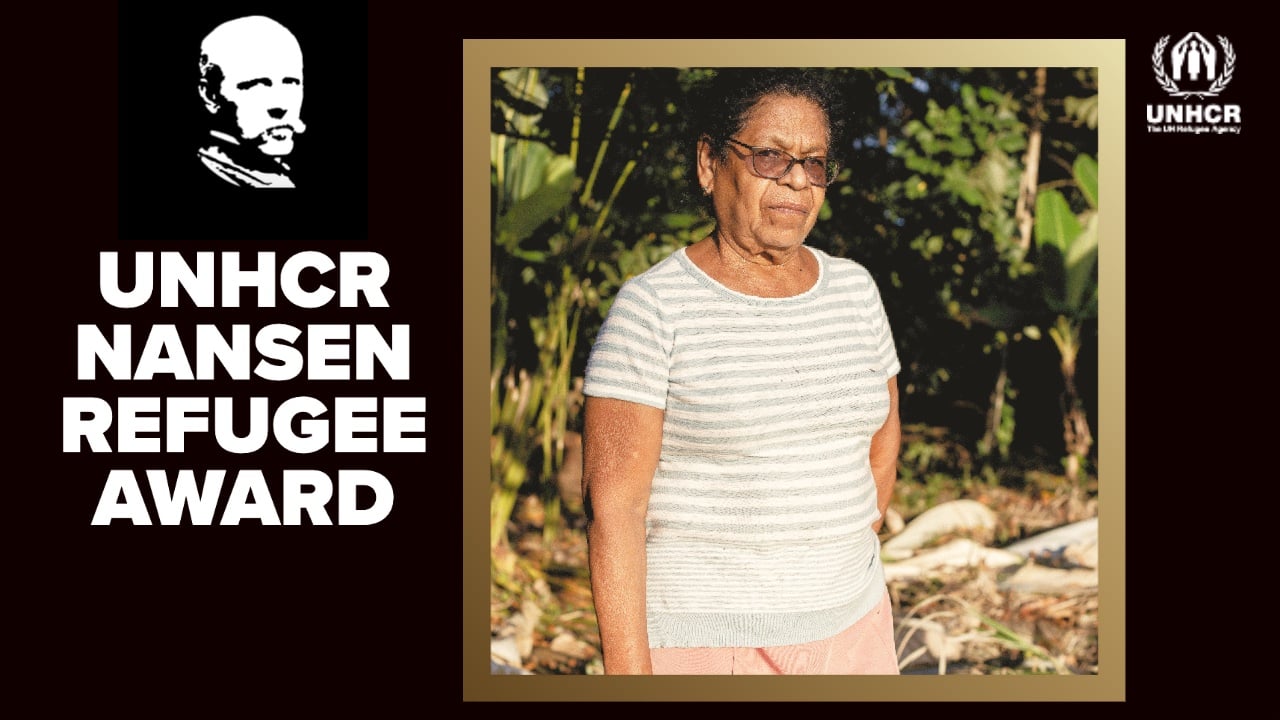Q&A: Nansen winners feel a duty to help survivors of the high seas
Q&A: Nansen winners feel a duty to help survivors of the high seas

GENEVA, September 13 (UNHCR) - Since Nasser Salim Ali Al-Hamairy founded the Society for Humanitarian Solidarity (SHS) in 1995, the Yemeni aid organization has helped and saved tens of thousands of people reaching the coast of Yemen after setting out from the Horn of Africa on smugglers' boats. But each year hundreds die during the perilous crossing of the Gulf of Aden - SHS staff bury many of those whose bodies wash ashore. The non-governmental organization, winner of this year's Nansen Refugee Award, also strives to improve humanitarian aid and to help local communities. Al-Himyari spoke by phone to UNHCR's chief spokesperson, Melissa Fleming, about the organization. Excerpts from the interview:
Take us through a typical day for the staff at SHS
At four in the morning our coastal team starts patrolling, keeping an eye out for any new arrivals. This continues up until 7:00a.m. On most days, our patrolling coincides with the arrival of a boatload of refugees. The SHS teams pick up the refugees, who are usually scattered along the coast, and start assisting those in need and providing them with meals, clothing and immediate medical aid. Then they check if anyone is missing and, if so, they conduct a search for them.
The surviving refugees are later transferred to transit centers to shower, rest and receive further medical care if needed. Meanwhile, our office in Aden and UNHCR's field offices are informed of the numbers and status of arrivals . . . After three or four hours, the refugees are taken to the Mayfa'a or Ahoor registration centres. The number of boats arriving on the coast is sometimes as high as seven per day.
Many of the arrivals are in a bad state after their arduous journey, and some die making the crossing. How does this affect you and your staff?
This humanitarian work, for our staff, has become their duty. It is the work they were born to do, under any conditions. Even though they face tragedy, they are helping vulnerable people and society. It is something they feel they have to do. There are moments of tragedy, but they are inevitable.
Has the unrest in Yemen and the famine in the Horn of Africa affected the numbers of people attempting the crossing to Yemen?
Yes, the famine in Somalia has increased the flow of refugees. More than 4,000 refugees and [irregular] migrants crossed the Gulf of Aden in August, the highest number in 13 years. This is usually a season of strong winds and rough seas when the number of people crossing drops. Meanwhile, the Yemen crisis and the deteriorating security situation has affected the refugees by limiting their ability to move within the country.
Are there any personal tales that have particularly touched you?
There are too many. For example, one time I went down to the coast with one of our teams and we found a capsized boat. There were more than 24 bodies, but the survivors outnumbered the dead. While helping these people we were surprised to hear noises coming from beneath the boat. We soon discovered that two women were trapped under the vessel and were screaming for help. The head of our coastal patrols and other team members tied ropes around themselves and dived into the water. They managed to reach the women under the boat and pull them out to safety. Nine days later, that same chief of patrols died when his car crashed while he was on another rescue mission.
What does winning the Nansen Refugee Award mean to you?
We at SHS are very happy to receive the Nansen Award. We were not expecting such a prize - ever! Winning this award will motivate our staff even more to dedicate their lives to humanitarian work. Now they feel their work is really appreciated by others.
Do you have any message for those thinking of crossing to Yemen?
I have three messages. The first one is to the international community - please help establish safety and security for Somalis inside their own country. My second message is to humanitarian organizations, to ask them to intensify their efforts to support the internally displaced in safe areas of Somalia so that they don't decide to risk their lives by crossing the high seas. Finally, I would ask the refugees and migrants to learn from the deadly accidents at sea and not risk their lives. A lot of the people who left Somalia to reach Yemen never made it [alive]. Some were found dead on the beaches and others were eaten by sharks in the sea.








